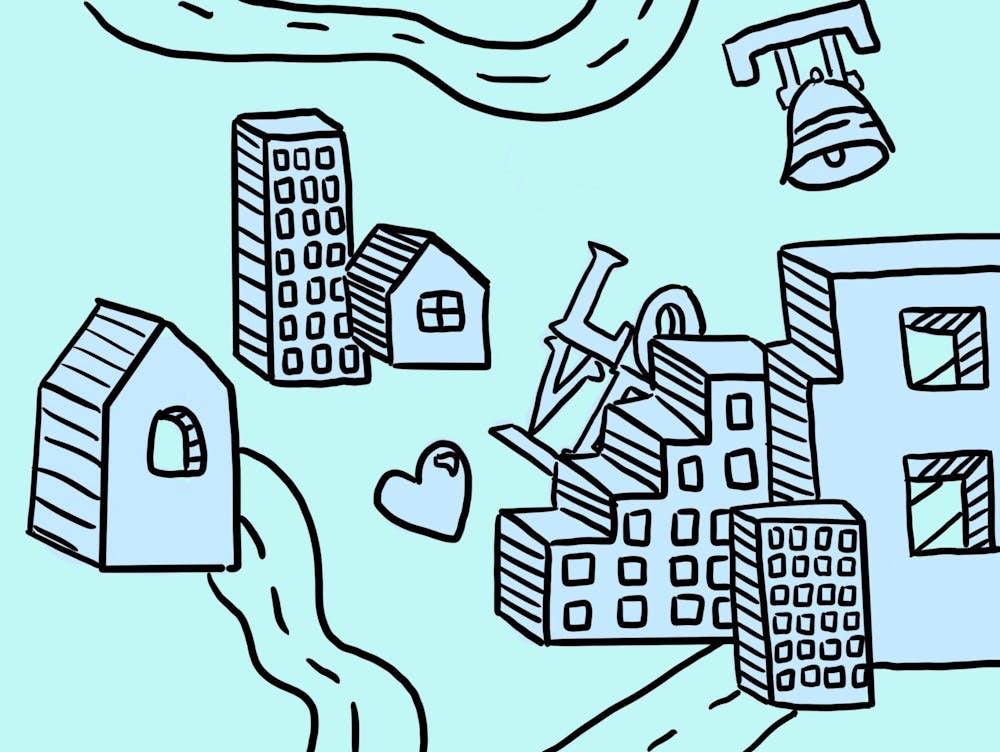
For many reading this, especially underclassmen, this time is likely filled with hyper-planning for the summer. In between vacations and relaxation time you’re likely considering some form of work.
For some, that may be a job back home. For others, conducting research may be the goal. For many, it's just about making a little cash while sampling a field that you could see yourself working in after graduation.
As the (not usually angry) Philadelphian, I want to send out a message to all of you in the last two categories. You should consider staying in Philadelphia over the summer, especially living off of Penn’s campus.
When considering a job or internship there are a few important things to keep in mind: how much you would enjoy the position, how much you like where it is, and how much money you’ll keep after it’s over. Each of these three categories are intimately tied to where an opportunity takes place, and Philadelphia has more to offer in those areas than many Penn students might expect.
There are a few common misconceptions about Philadelphia, and a recurring one is that Philadelphia is a dying city. With the baggage of being on death’s doorstep comes the assumption that opportunity is scarce.
That is simply incorrect. Philadelphia is growing and more jobs are coming to the area. In an interview, Barbara Hewitt, the executive director of Penn’s Career Services, said that some of Philadelphia’s strengths coincide with the many of Penn students’ interests.
“[Philadelphia] really is a health care mecca … there’s a startup and entrepreneurship scene … and there are more finance opportunities than you might think,” she said.
Besides these popular summer avenues, Philadelphia is also home to over 6,000 non-profit organizations and 15 Fortune 500 companies. While it is true that Philadelphia still struggles with poverty, Philadelphia’s government has taken deliberate steps to reduce this and is always looking for more college-age students to help.
Philadelphia has also consistently been rated one of the best cities to visit in the world. While we may live here (enough to be legally considered residents, anyway), to say we have really seen the city might be a reach. And while we might associate Locust Walk with stress, few of us take advantage of Philadelphia's bike-friendly streets and walkability to stroll the Navy Yard, spend an afternoon in The Woodlands, or roam about Philadelphia’s cultural institutions.
Finally, Philadelphia remains one of the cheapest big cities to live in. With a work-study income and college-student spending habits, Philadelphia offers more choices on a smaller budget, and is a short (and cheap) ride away from New York City, Washington D.C., and countless other attractions.
I don’t want to be misunderstood as saying that a low cost of living and nice walking trips should wholly determine a city’s worth as a place to spend the summer. They should not. But the difference between living in a city in two four-month stretches versus twelve continuous months is substantial, especially when we are not often inclined to leave the Penn safe zone (which I define as campus and the Rittenhouse Square area) during the year.
By spending a summer here, we can become more familiar with our surroundings and feel more confident that we have a place in the city. And in all, we can better integrate ourselves into a community that often views Penn as an affluent island in a city where many are just trying to stay afloat.
Philadelphia’s opportunities make it ripe for a combination of informative work and meaningful play. But we must strive to go further than a typical day in the semester. Calling the city home for the summer is one step in the right direction.

ALFREDO PRATICÒ is a first year in the College from Philadelphia. His email is pratico@sas.upenn.edu.
The Daily Pennsylvanian is an independent, student-run newspaper. Please consider making a donation to support the coverage that shapes the University. Your generosity ensures a future of strong journalism at Penn.
Donate






